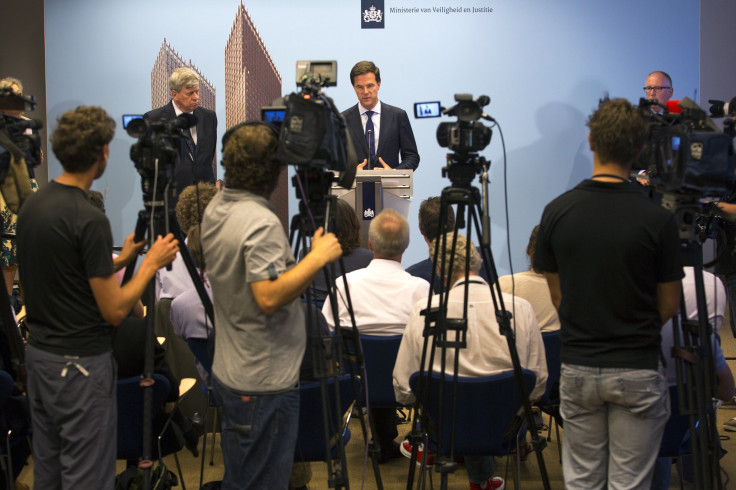After MH17, Holland's Cozy Relationship With Russia Under Fresh Scrutiny

As relations between the West and Russia deteriorated this spring following Russia’s seizure of Crimea, the European Union’s 28 member states have struggled to present a unified position on sanctions against Moscow. While some countries, like Poland, have joined the United States in supporting tough punishment -- such as targeting state-owned enterprises -- others have demurred, careful not to antagonize a crucial trade partner.
Until now, the Netherlands was among the European countries that were least inclined to challenge Russia. But in the wake of the Malaysia Airlines Flight 17 disaster, which claimed 192 Dutch lives when felled by a surface-to-air missile on Thursday, the Dutch government now faces pressure to toughen its position toward Moscow. Pro-Russia separatists are suspected of using a missile possibly supplied by Russia to down the flight. To do so, however, the Netherlands must reverse a policy that favored its economic interests over all other considerations.
So far, the Netherlands has refrained from accusing Russia -- or anyone else -- of culpability in the attack. In a tweet sent on Friday (and translated by Vox), Prime Minister Mark Rutte said he is “committed to ensuring that the perpetrators are identified and punished.” But at a news conference in The Hague, Rutte struck a more cautious tone:
“If I bang my fist against the table now … then I reduce the chances of the Netherlands and all those who support us getting facts on the table,” he said.
Like many other European countries, the Netherlands depends on Russian oil and gas imports for much of its energy needs, but the Dutch case is particularly acute: No other European country had as high a trade deficit with Russia in 2012, and the Netherlands has also positioned itself as a tax shelter for Russia’s billionaires.
But after an attack that claimed a higher proportion of its citizens than the United States lost on Sept. 11 2001, can the Netherlands afford to maintain the status quo in respect to Russia?
The Dutch position may depend in part on how the rest of Europe -- and the United States -- decides to proceed. American sanctions on Russia have consistently been harsher than those by the European Union, which thus far have only hit individuals, not companies. Discussions over what to do with Russia played a role in recent European Parliament sessions, which elevated this week Jean-Claude Juncker, a former Luxembourg prime minister, to the European Commission presidency. European proponents of strong sanctions have expressed concern that Juncker will be too conciliatory toward Moscow.
Shifting energy politics may also play a role in Amsterdam’s response. The Gate liquefied natural gas terminal, located near Rotterdam, currently operates at just 10 percent of its present capacity. A large increase in maritime natural gas imports would help insulate The Netherlands from a drop in Russian supply. This, as much as satisfying the public thirst for justice, may be the main factor in shaping how Holland reacts to Thursday’s plane crash.
© Copyright IBTimes 2024. All rights reserved.





















